The Litigation of Popular Christian Parenting Teaching
When Ritualized Spanking Intersects with #churchtoo CW: sexual abuse and corporal punishment
I read God, the Rod, and Your Child’s Bod today, and, as usual, I googled the author to research his credentials. Larry Tomczak’s name lit up multiple headlines, because in 2013 Pastor Larry Tomczak was accused of abusing a woman for 25 years, beginning in her childhood and beating her bare backside well into adulthood.
Investigative journalist
, who read descriptions of the allegations, described it as some of the worst she’s ever read. Tomczak was one of seven pastors at Sovereign Grace Ministry churches accused with cover-ups of child molestation and other allegations of abuse by eight plaintiffs.In chapters 9-10 of her excellent book Disobedient Women: How a Small Group of Faithful Women Exposed Abuse, Brought Down Powerful Pastors, and Ignited an Evangelical Reckoning, Stankorb details these events and the survivor community that brought it all to light. The case, which sought to prove church cover-ups, was eventually dismissed based on technicalities, and Tomczak later explained that the allegations against him personally were a “disciplinary parental issue” involving a “troubled family member.”
The stories of survivors, however, recount egregious sexual and physical abuse by multiple perpetrators, including teenagers molesting toddlers and preschoolers as well as grown men abusing young girls and boys. Church cover ups, theologies of submission, environments of spiritual abuse, and powerful leaders avoiding accountability are common features in #churchtoo survivor stories. Here I want to examine the way family life teaching contributes to this incalculable betrayal of trust, and the way the parenting “experts” who profited off of their books and seminars continue to avoid any accountability for the ways their instruction enabled, or, according to the allegations against Tomczak, perpetrated abuse.

Larry’s Author Credentials
Originally, I thought this book would be just another footnote in the research for the In The Way They Should Go project, joining the numerous other resources that continue to inform my understanding of the Christian parenting landscape. But because Tomczak appears determined to minimize the harm of spanking, and because he’s equated credible allegations of abuse with a “disciplinary parental issue,” I want to detail the teaching found in God, the Rod and Your Child’s Bod. I encourage readers to keep allegations of abuse in mind as they consider the summary of the book’s teaching.
Unlike many of the other resources I’ve examined, it was difficult to find a copy. One used edition is for sale for several hundred dollars on Amazon, and, after seeing the headlines, I wondered if Tomczak himself scrubbed the title. Fortunately (or perhaps unfortunately), a nearby Christian university had a copy available for inter-library loan. Out of print now, the book was rebranded as the church-published Little Handbook On Loving Correction: How To Raise Happy, Obedient, Respectful Children and now continues to circulate via an audiobook adaptation and things like a 2019 blog post with near-verbatim quotes from the book originally written over forty years ago.
It’s worth noting that Tomczak doesn’t have any particular credentials that qualify him to offer countless other parents any parenting advice, let alone to tell them his ideas are “positive, effective, and, most importantly of all, God-ordained.”1 Larry began preaching in his early twenties with no seminary education or formal pastoral training. He wrote God, the Rod, and Your Child’s Bod sometime leading up to its publication date of 1981. Tomczak, who is now in his mid-seventies, was around 32 years old and the parent of a toddler when he wrote this book telling parents they “will never get anywhere until they accept, in faith, the rod as God’s appointed instrument of loving—the essential foundation, and CORRECTION.”2 It’s worth noting that the authors of almost all of these resources (like the Christian parenting influencers of today) wrote their first books as relatively young parents and thus paired an easy certainty with an almost entirely theoretical knowledge of both children and parenting.
Dobson was a new parent with a preschooler and an infant when he published the bestselling Dare to Discipline. Ginger Hubbard’s children were around the ages of eight and five when she wrote Don’t Make Me Count to Three. Tedd Tripp had teenagers still at home when he penned Shepherding A Child’s Heart. Gary and Anne Marie Ezzo were in their thirties when they began dispensing parenting advice. Dobson stands out as someone who had professional experience as a child psychologist, and sometimes parenting “experts” had unrelated degrees, but I point the general lack of credentials here, because it’s worth noting that these theoretical books were primarily written on Christian parenting vibes.
Christian Parenting Vibes
What are Christian parenting vibes? Well, read enough of these resources, and the formula becomes clear: common parental worries about societal ills are paired with prooftexted Bible verses that promise different desirable outcomes. Rinse and repeat each decade.
For Tomczak, it’s feminism, teenage pregnancy, abortion, child abuse, drugs, TV and movies, and school failure that parents should worry about, framed with examples of how bad parenting can turn your children into murderers, rapists, or victims as he story-tells what happened to Charles Manson, Marilyn Monroe, John Hinkley Jr. and Lee Harvey Oswald.3 Christian parents thus must be ever on the alert, because the stakes are high, and they are fighting a solitary battle: “Government institutions, mass media, and schools can no longer be relied upon to support Christian family life.”4 Dobson had a similar list. Parenting experts today provide a new twist on such societal woes: are therapeutic interventions or social media apps to blame?
It’s worth noting that parenting experts aren’t merely making observations about societal change, they inevitably follow up their concerns by dropping the receipt at the foot of parents who are failing their children. Fathers are under scrutiny in Tomczak’s book, because their passivity has allowed matriarchy and feminism to bring the curse of Isaiah 3 on America for abandoning her Judeo-Christian values.5
In every generation, parenting experts are confident that parents and their lenient parenting methods are to blame. Today’s Christian influencers look askance at “gentle parenting.” So do secular critics like best-selling author Abigail Shrier. In the '80s, Tomczak targeted “libertarian” approaches. “Everywhere,” he writes, “people are realizing that yesterday’s permissive parental attitudes have produced the rebellion evidenced in the younger generation today.”6 Tomczak goes on to assert that the very idea of child discipline is “under attack” and must be shored up.7
In that sense, there’s nothing new in Tomczak’s book. He quotes James Dobson, Bill Gothard, Jay Adams & other Christian family life teaching favorites about the need for strong families. He relies on the dehumanizing humor and the jokey-writing-voice that is so common these resources, for instance: “if [a child] deliberately disobeys or displays a wrong attitude . . . he receives ‘the board of education on the seat of learning.’”8 He offers the tired anecdotes of children misbehaving in grocery stores, in restaurants, in parking lots. He prooftexts Bible verses to suit his purposes. He promises parents if they do things right they can have godly children.
They do have to do it right, mind, because “consistent correction is not an elective but a directive from Almighty God . . . the rod of correction will only bring true success when administered in the context of a strong healthy love bond between parents and child.”9 In other words, if things don’t turn out for your family, it’s because you’ve done it wrong. They key for understanding the Right Way to parent? The Bible, of course.
Prooftexted Bible Verses and Stowaway Theological Doctrines
If you’ve followed my and
’ work for any length of time, you know that this was bound to show up. Ideas about sin and God and how parents must act like the latter by purging the former via corporal punishment are foundational to countless popular Christian parenting resources.I’ve written elsewhere about how the Proverbs are consistently twisted to claim that “spanking” young children is a biblical mandate. Tomczak does this as well, rewriting the KJV to read “Withhold not correction from the child: for if thou beatest [spank] him with the rod, he shall not die. Thou shalt beat [spank] him with the rod, and should deliver his soul from hell. The biblical definition of a rod is a small flexible branch from a tree (a wooden stick.)”10 He offers no substantiation or references for these claims.
The corporal punishment of small children is necessary, according to Tomczak, because, children are the “servants” of Prov 29:19 and cannot be disciplined with mere words.11 Furthermore, children have an evil bent, the sin nature the parents are to punish, and a good bent, the God-given personality that parents are to cultivate. This leaves the entire process subjectively determined by the parent. Which behavior is good? Which is evil? Which requires spanking? And how much will be needed to drive out the evil bent?
Presumably, the parents will know, and their good intentions will be their justification. In response to a question raised about whether spanking contributes to violence, Tomczak asserts that “it is unfair to blame the violence in our society on the efforts of loving parents who are trying to raise their children scripturally by using the rod of correction.”12 Parents are the authorities, after all, and should be judged by their intent not their impact. This, too, is common in Christian parenting resources. Somehow, in some inexplicable way, because parents believe the spankings are loving, children will perceive them thus. Tomczak writes, “Loving correction reinforces with a painful experience the principle of the parents’ authority over the child, and lets the child know that the particular action or attitude is unacceptable. He is totally secure in the parents’ love.”13
I have to wonder how many parents believed that love=spanking, that “spanking is an event” only to discover that, no, actually, children did not magically perceive being hit to be loving simply because the parent wanted it to be so.14 In fact Tomczak himself seems aware that parents might not be the best judge of that, frankly acknowledging that he and his wife Doris lost control while spanking. Even so, he thinks that parents who blow it and use the rod in error shouldn’t sweat it. “Children are not as fragile as many of us think. They’re flexible. They’re tough. Plus, they forget quickly!”15
Liturgies of Spanking
Experts like Tomczak claim there is a biblical Right Way to “spank,” required by Scripture. They then proceed to nonsensically add on made-up step-by-step directives, indicating that without these very specific procedures, spanking will harm children. Here are a few of Larry’s:
There should be multiple designated rods. Tomczak advises parents to “keep a number of rods throughout the house, in your car, and in your purse. Not only is it important for ready usage, but it’s also amazing how rods of correction can mysteriously disappear!”16 Larry must have thought this was a banger of a joke, because he delivers it stand-up style at least thirty years later in a talk posted on his website.17
Parents should spank immediately. They can use a phone booth or public bathroom if out in public. They should not wait until later, lest they “find [themselves] finally reacting out of frustration and anger . . . something Doris and I both have slipped into at times.”18 Tomczak also references the misery of his own childhood, when his parents threatened his misbehavior in church with a looming spanking “when they got home.” Instead, he recommends parents sit in the back at a church service and take their children right out for a spanking, as, Tomczak asserts, the families in the church community that would eventually become SGM did. “It’s amazing how quietly the children sit upon their return.”19
Parents may need to give repeated spankings. The goal as Tomczak describes it is for it to be painful and get results. “They have to feel it,” he says.20 “Some children have a little more ‘padding’ and are strong willed, so they need a longer spanking.”21 When an unnamed reader expresses concern that a child may disobey so repeatedly that spankings will cause a concerning redness on their skin. Tomczak jokes that “posterior protoplasmic stimulation” can cause this and not to worry.22
Parents should use a neutral object. Tomczak thinks the Biblical Way to spank inexplicably makes belts and buckles and hairbrushes off-limits. Instead, parents should carve their own wooden stick or buy wooden spoons. Children are required to get the rod and put it away after their spanking in a ritualized process. Parents should not use their hand, because “a child tends to associate pain with whatever inflicts it.”23 This, too, is a common recommended Right Way magical-thinking spanking hack. It seems never to cross these experts’ minds that children might indeed associate pain with the parent inflicting it, whether mediated through a “rod” or a hand.
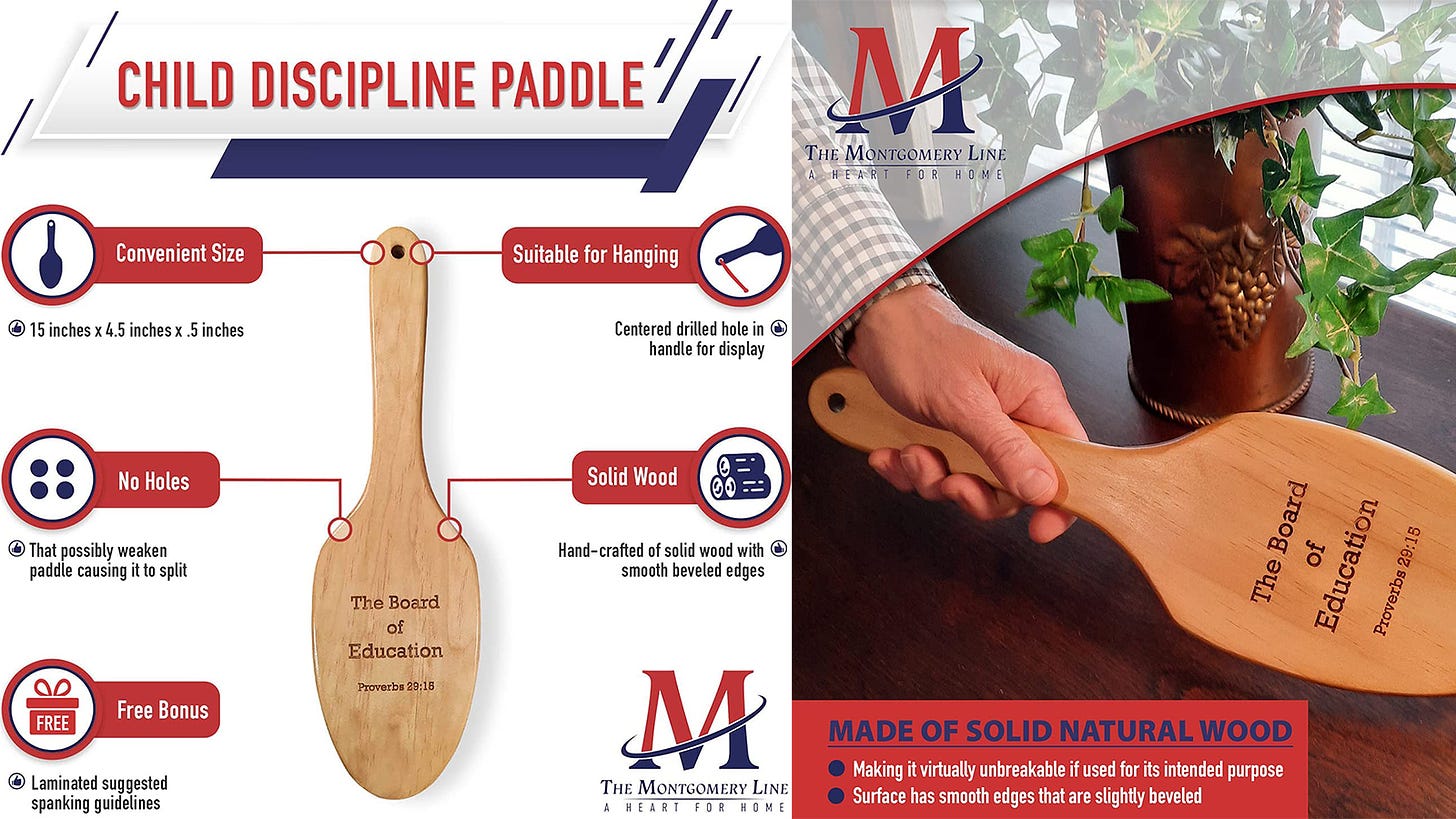
Parents should begin spanking early.24 Tomczak hesitates to give an exact age and suggests that this can occur around 18 months. Of course he also says that spanking is in response to discerned rebellion. You might well be asking: what does rebellion look like in an 18 month old? This is perhaps best understood via Tomczak’s examples taken from his own practices with his son:
“Before his first birthday, Justin [Tomczak’s son] was corrected on two occasions for trying to manipulate Doris and me by screaming. Knowing his needs were completely met, we observed him scream when Daddy exited and then laugh upon his return. Over and over he did this, disregarding our firm nos. Finally, we accompanied the no with a firm finger flick on the thigh. After a few times, we saw the results.”25
“When Justin was sixteen months old, he would awaken from his naps cranky and whiny. Then one day we realized we could help him overcome his wrong attitude. Prior to his nap, Daddy got down on his knees and imitated the way Justin was presently awakening . . . When Justin later awoke and began his ‘rumblings,’ we stationed ourselves outside his door and I said, ‘Mommy, isn’t it nice that Justin will be a happy baby when we go see him? No more bad attitude. Nooo! Justin serves the Lord with gladness.’”26 In this instance, it seems, verbal correction and catechesis—a long with a version of manifesting—is sufficient to induce desirable behavior.
“When Justin was fourteen months old, he developed a bad attitude toward us as we lovingly corrected him. We dismissed it for a while, but then realized it was not of God. The problem? As we’d talk to him about his offense, he’d stubbornly refuse to look at us . . . after numerous sessions where Doris applied loving correction (with appropriate communication and affection each time), she finally achieved success . . . she demonstrated the fruits of her labors and we praised God together.”27
Tomczak also identifies that “sulking, whining, fussing, arching one’s back defiantly, pouting, complaining, holding the breath until the child turns blue - these are all evidence of a wrong attitude, and warrant the rod of correction after clear instruction. Even withdrawal and refusal to greet people when told to do so . . .”28
In phraseology that Tedd Tripp would later popularize, Tomczak asserts that “outward obedience is not enough. God looks at the heart and so must we.”29 This, as is common in Christian parenting teaching, positions parents in a godlike role, operating according to their perception of God—a deity who scrutinizes and punishes the heart. Tomczak recommends parents rock children after spanking them, because they are typically “clingy” and then say something along the lines of this script: “Justin, now look at Daddy. You know how much I love you, but when you don’t obey, Jesus teaches that you must receive the rod. Now are you sorry you disobeyed (or had a bad attitude)? . . . Are you going to obey and be a good boy? Good. Then Jesus forgives you and Daddy forgives you, and everything is all better. I love you.”30
Similarly, he instructs a mother to remind her daughter that “God requires me to spank you” and suggests that the mom play-act spanking with her daughter by initiating a role play where the daughter “spanks” her mother.31 Not only must parents train their children to obey, they must train their children how to receive a spanking: children must not scream, children must not cover their bottom, children must play spanking games with parents during calm times to prepare them for real spankings.32 All of this plays out in the immediate moment for a child and also sets up hurdles that adult children must later overcome to name their experiences as abuse.
These scripted liturgies offered to Christian parents reveal underlying stowaway theologies about atonement. Does God punish people for failed obedience and only offer forgiveness after they’ve received retributive corporal punishment and promise to behave?
Tomczak seems to believe as much and reiterates that spanking is a particularly Christian duty. “Consistent correction is God’s command,”33 he says, and follows it up with a reminder that “whoever knows what is right to do and fails to do it, for him it is a sin" (Jas 4:17). Thus parents, too, must obey quickly and thoroughly, lest their failures to spank bring upon them their own form of punishment—children who turn out to be criminals or victims to societal decay.
In an anecdote that uncannily echoes one Jim Dobson tells about spanking a child in a parking lot, Tomczak recounts how his 18 month old son resisted holding his hand, something that resulted in a series of repeated spankings such that “a lady who had been watching the entire scene stopped me by asking ‘Ah . . . does that little child need his mommy?’—projecting guilt all over me—‘I couldn’t help but hear him!’ Sensing that this lady viewed me as a candidate for charges of child abuse, I politely thanked her for her concern and explained to her what had just transpired. I also used the occasion to share with her my commitment to Jesus Christ and biblical principles for child rearing. Even though she didn’t agree, I felt she understood by the time I was done.”34
Both Dobson and Tomczak were confronted by women who witnessed child abuse and attempted to intervene. Bless those women. Unfortunately, neither Tomczak nor Dobson listened to them, and, as Tomczak is quick to point out on his website, spanking is legal in every state.
For Tomczak, “Daddy always wins and wins decisively.”35 Parents (and babysitters should authority need to be delegated)36 will know they have achieved their goal when they “hear the repentant cry, not just a contrived cry or a cry of protest.”37 In fact, multiple times throughout his audiobook How to Raise Respectful, Responsible, and Obedient Children, Tomczak acts this out, dramatically reproducing parents yelling at their children and exaggerated sobs to demonstrate a child’s penitent response.38
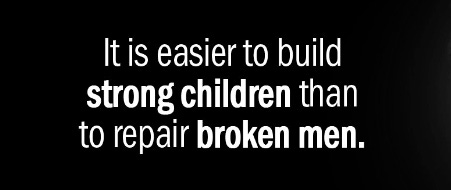
Similarly, he delivers jokes on cue with obvious delight. “God in his wisdom,” he says in a sing-song voice, “prepared a strategic place on our children’s anatomy which has enough cushiony, fatty tissue and sensitive nerve endings to respond to Spirit-led stimulation. This area is the base of the back, above the thighs, located directly on the backside of every child. All children come equipped with one!”39
“Spirit-led stimulation” and “sensitive nerve endings” take on even more sinister connotations when one considers the multiple allegations of CSA and physical abuse made by children raised in SGM communities.
Child Sexual Abuse and Spanking
While many adults who were spanked claim it had little impact on them, many others identify harms, often ones related to sexual abuse. Several months ago the Christian parenting account Flourishing Homes and Families ran a series about corporal punishment. They soon were flooded with hundreds of messages from adults identifying ways spanking contributed to confusing sexual arousal, self harm, and long lasting impact. Other people have identified how spanking combines violence, sexuality, and dominance in a heightened state of arousal and may be a grooming tactic for additional forms of sexual abuse.
Community norms also contribute to this. Consider Tomczak’s claim that daughters become promiscuous due to lack of affection from their fathers.40 Or Dobson’s teaching that girls need to capture their father’s attention. Or Voddie Baucham’s observation that “a lot of men are leaving their wives for younger women because they yearn for attention from younger women. And God gave them a daughter who can give them that. And instead, they go find a substitute daughter . . . We’ve all seen it. These old guys going and finding these substitute daughters.” The underlying subtext throughout sexualizes the father-daughter relationship in troubling ways.
Christian Family Life Teaching and “Spanking”
Christian parents to this day regularly minimize the impact of “spanking," claiming if it’s done the Right Way, it isn’t and can’t be abusive, or that, in their experience, they turned out fine. This maddening conclusion ignores the countless survivors of abuse who identify that, in their experience, it wasn’t fine. It was abuse. And for some, it was child sexual abuse.
While Tomczak still describes his idea of spanking as “loving, legal, and logical,” it is long past the time for Christian communities to reckon with the ways teaching and practices about spanking intersect with and enable child sexual abuse. Is it a one-off that many of the same teachers who advocate for the liturgical corporal punishment of children are affiliated with infamous cases of child abuse and/or communities that failed to respond properly? Voddie, the regular speaker at Vision Forum conferences. Tedd Tripp, who used spiritual language to cover for a known child abuser. Doug Wilson and the trail of dismissed survivors in Moscow. In fact, I’d argue, very often the Right Way liturgies of spanking as detailed make books like Tomczak’s manuals for abuse.
As I’ve written before, research around corporal punishment is particularly difficult to parse—self-reported data, confounding factors, and overlapping elements make it nearly impossible to come to peer-reviewed conclusions. While we may not be able to achieve those, we can look at the original sources to understand what parents were being told to do and how.
We can consider those in light of allegations such as those brought by victims and survivors. And here we find not only the expected formulas of promised success and prooftexted Bible verses, but an evil recipe for abuses done in God’s Name that caused untold numbers of children incalculable harm and betrayed countless families: bare bottom ritualized spanking with no age limit on either end, role plays of dominance, warped ideas about parent-child affection, permission granted to others to spank children, normalization of community spanking practices, conflation of love with pain, and parents who were told God Himself required all this of them.
In a revealing passage, Tomcazk describes how a mother wrote to tell him how much she benefited from the course Larry and Doris taught called Creating a Successful Christian Home. “I would like to share with you both,” the mother begins, “that in obedience to teaching in lesson eleven . . .” she goes on to explain how they followed the Tomczak’s advice to have children practice sitting still for church at home.41 I spotlight it here, because the mother reached for the language of obedience to describe how she felt she ought to respond to Tomczak’s teaching.
This fits with the descriptions of church culture in high control religion, where the “children” in church family systems must obey the leaders under threat of shunning, ostracization, or other punishments should they break the family code of silence. It’s a vicious cycle that continues in Christian families and churches, where even the court of law rarely litigates the ways children were betrayed by the hand of abusive people.
and I sometimes talk about how there is no accountability for many of these Christian parenting experts. They wrote their books, built their empires, profited off the sales, and continue in ministry, leaving betrayed families picking up the pieces. Larry Tomczak is not only ministering to this day, he is offering the same, unmodified parenting advice that he has been for the past forty years, the same advice that presumably informed the parental approaches which he himself seems to have identified with the allegations made against him. Additionally there are many survivors who recount a culture of abuse in Sovereign Grace churches. Just this month, a lead pastor was arrested for “sexual battery and child molestation related to his oldest daughter.” It’s hard to say whether abusive people are attracted to teaching/communities that enable abuse or whether the teaching/communities themselves create abusers, but in any case Christians would be foolish to continue to turn away from the abuse crises in our pews.Recently, I received a surprising message from someone. They had found my deep dive on Tedd Tripp’s Shepherding A Child’s Heart and were including it in a lawsuit against their abusive parents. I am not a lawyer and do not know whether examination of these print resources can hold up in court, but I do know that should the legal system fail, as a Christian I believe there is One to whom all must give account, One who had strong words for those who would harm even *one* child.
This week, Beth Moore tweeted in response to discussion about the SBC’s efforts to divert attention away from their own sexual abuse crisis by focusing on women pastors, and her words have stuck with me all week. I’ll close with them here: “It is sinful, deceptive and on open display before the eyes of the Lord with whom we all have to do. They can forbid women to speak or teach or preach or anything else they vote to do. That is their denominational right. But what they can’t do is lie, scheme, cover and manipulate and get away with it. The Lord sees and, at some point, time will be up.”
Introduction, God, the Rod, and Your Child’s Bod, by: Larry Tomczak, Fleming H. Revell, 1981.
pg. 119
pg. 57-58
pg. 19
pg. 53
pg. 34
pg. 26
pg. 47
pg. 36
pg. 44
Interestingly, Tomczak includes a longish segment about the evils of thumbsucking. After determining that thumb-sucking isn’t a sin, Tomczak advises parents to pray earnestly that God will “sovereignly begin to remove your child’s desire for thumbsucking” (pg. 101). He prooftexts Mark 11:22-26, John 15:7, and Matthew 7:7-11 to reassure parents that God will hear their prayers. He then goes on to suggest parents follow pediatrician Dr. Richard Parmley’s advice for a combination of nighttime socks over hands and a sticker reward chart. However, parents must not imagine that the pediatrician or the child are to thank. It is the parent’s prayer that achieved any result. “If you use this plan,” Tomczak writes, “remember you must proceed in faith and your faith is not in a method or a man but in your Maker” (pg. 102). This single reference to an external source of authority cannot even stand on its own. It all must be reframed as a spiritual response due to faith, thus assuring Tomczak’s authority.
pg. 44
pg. 48
On pg. 86 Tomczak quotes Larry Christenson, who in his book The Christian Family tells parents they cannot just swat their child, but that “spanking is an event.”
pg. 49
pg. 117
Tomczak references MTV’s Jersey Shore (which premiered in 2011) in his audiobook, How To Raise Respectful, Responsible and Obedient Children that is available as a free recommended resource on his website. His joke begins at 2:15:10.
pg. 114
pg. 115
audiobook, 2:22
Tomczak, pg. 113
pg. 114
pg. 118
In his audiobook Q&A session, Tomczak is asked when parents should stop spanking and answers that they should be led by the Spirit and advises that consequences are appropriate for older children. I note this here, because allegations against Tomczak included reports that he beat a woman on her bare bottom from childhood well into adulthood. This teaching of spanking as long as a parent sees fit and other principles in his book align with the allegations against him.
pg. 92, bolded emphasis mine
pg. 99, bolded emphasis mine
pg. 99, bolded emphasis mine
pg. 98
pg. 98
pg. 104
audiobook 2:32
audiobook 2:34
Tomczak, pg. 104
pg. 111
pg. 110, emphasis mine
Tomczak indicates that parents ought to decide whether to give babysitters authority to spank their children. This is relevant, I think, to later survivor accounts of children in SGM being abused by their babysitters.
pg. 112
audiobook 2:23
Tomczak, pg. 118 and audiobook 2:17
pg. 55
pg. 116





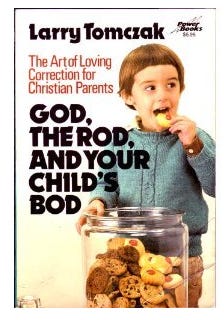
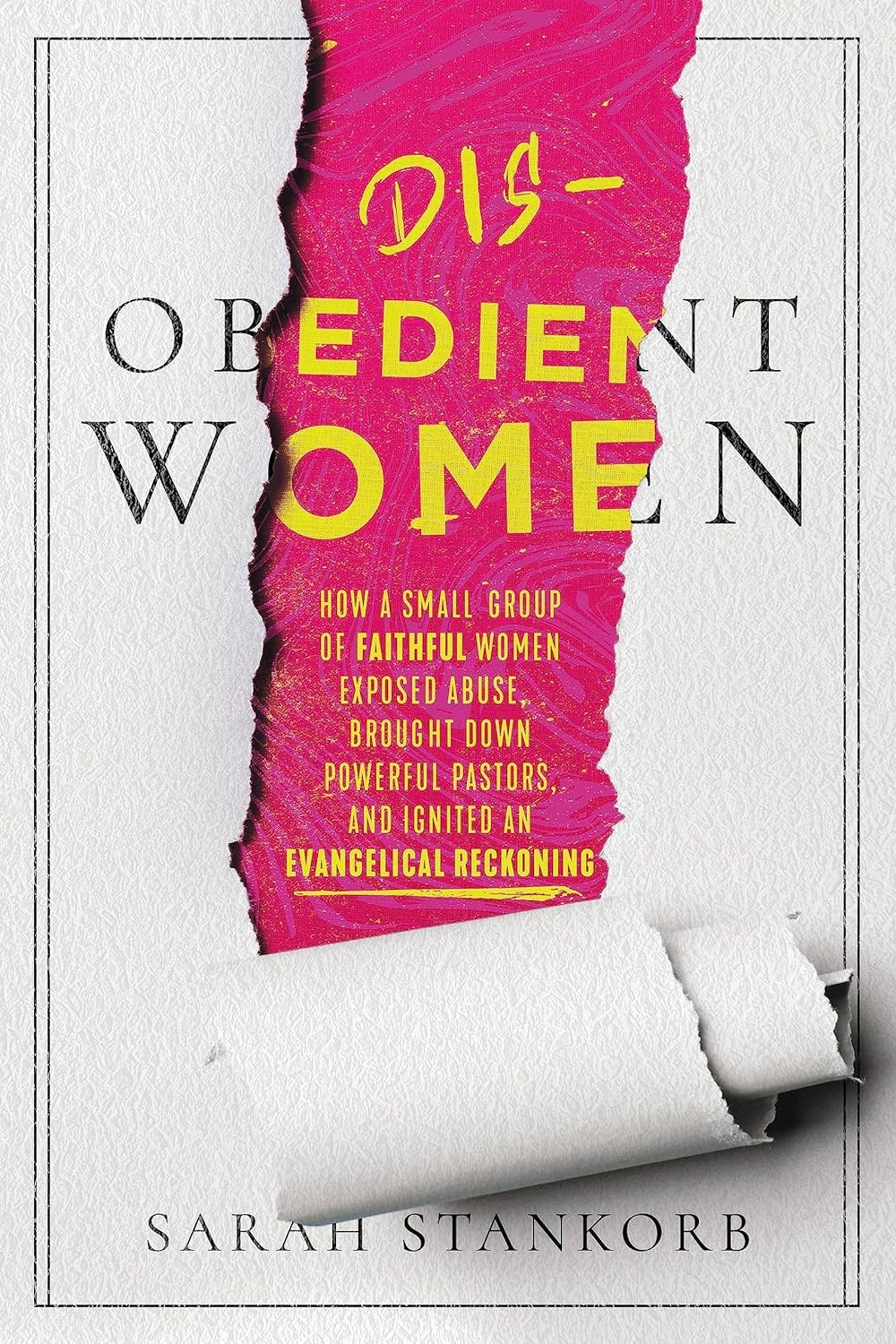
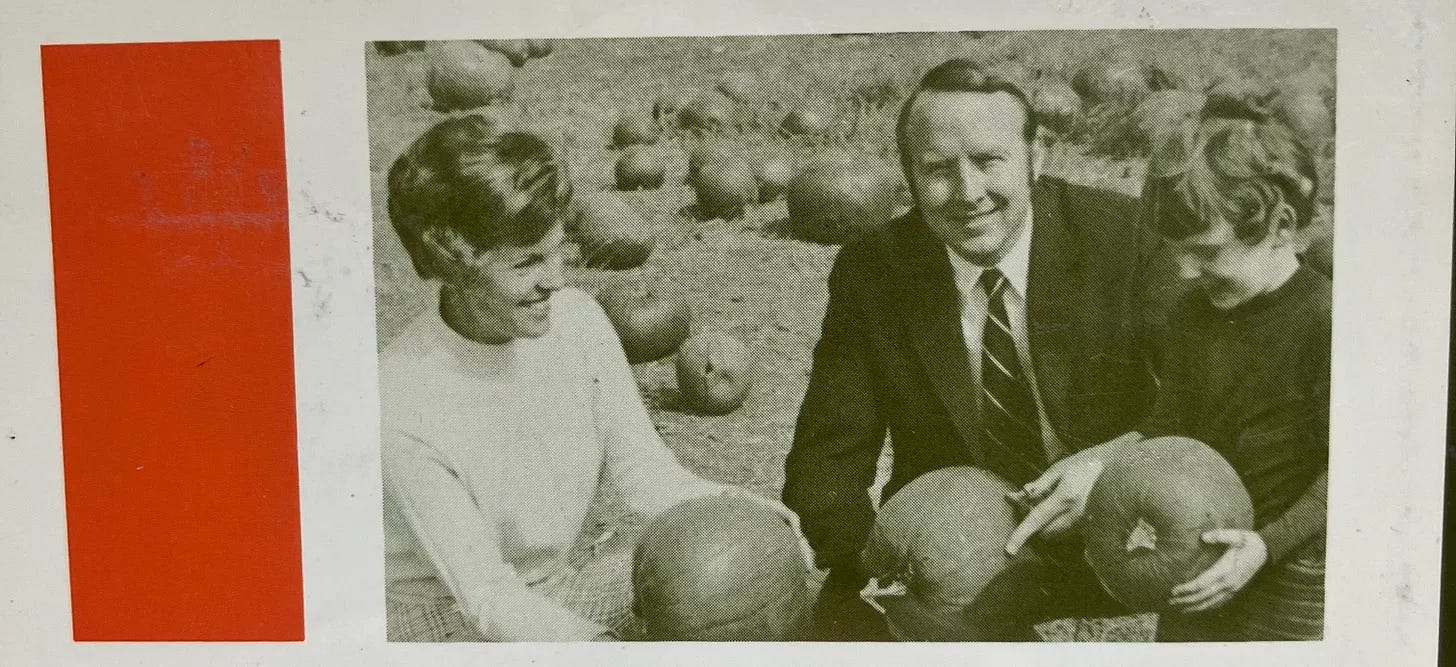
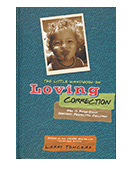
I was raised in a non-Christian, single parent family and was smacked as a child. I swore I’d never do that to my children. I came to Christ at the age of 27 and a few years later came into this ‘spare the rod’ teaching. As a Christian I was taught to smack my children. We were baby believers in a cultish ‘church’ my husband and I hadn’t a clue. We ‘corrected’ our two children (one more than the other) for a few years. It was horrible for everyone but of course, life impacting for our child. When we finally began to question things and came out from under that hateful teaching I was heartbroken. I went to my children in tears and asked for their forgiveness, I’ve actually done this several times over the years as. I will take the sorrow of spanking them to my grave. Thank you so much for writing and sharing this.
The quotes from Tomczak regarding having multiple rod, making the child get the rod, and spanking immediately in public instead of waiting to go home all sound exactly like the Pearl's 'To Train Up a Child'. All these parenting 'experts' just seem to be plagiarizing one another. Also, the alliterative title of the book is really creepy - the slang term 'bod' is usually seen in sexualized contexts.